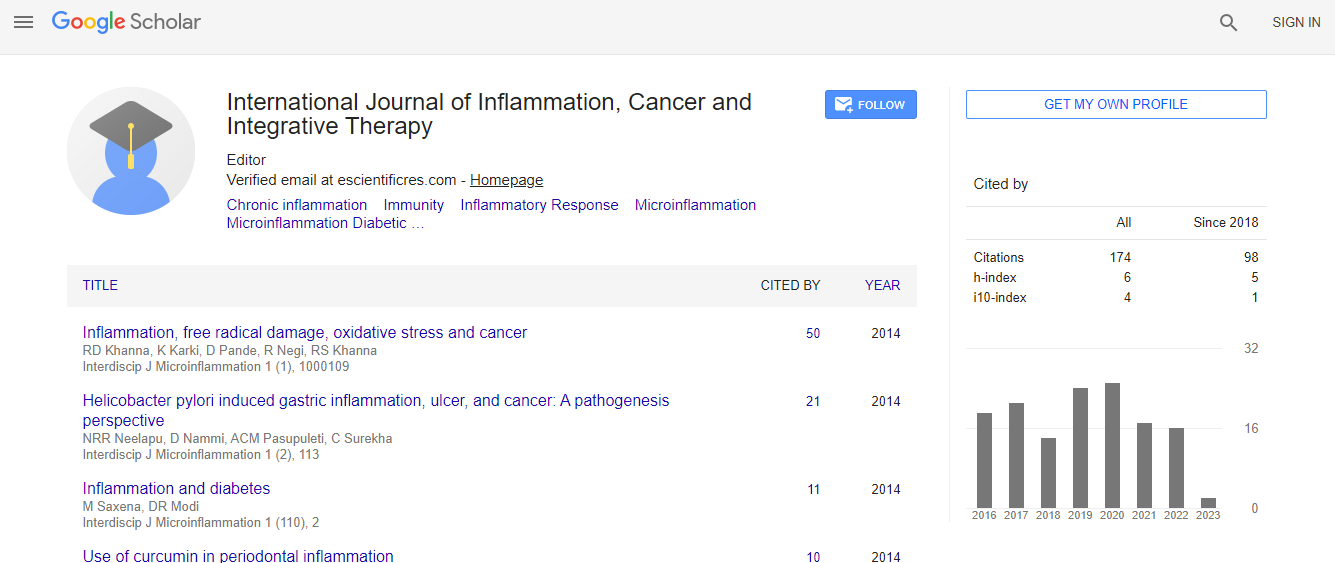Profiles of Endoglinand Vascular Endothelial Growth Factor-Based on Staging and Histological Grading of Colorectal Cancer, and Its Relationship with Bevacizumab Therapy Cancer
*Corresponding Author:
Copyright: © 2020 . This is an open-access article distributed under the terms of the Creative Commons Attribution License, which permits unrestricted use, distribution, and reproduction in any medium, provided the original author and source are credited.
Abstract
ABSTRACT: This study evaluated the profile of CD105 (Endoglin) and VEGF protein based on staging
and histopathological grading of Colorectal Cancer, and evaluated its relationship with
bevacizumab therapy. A total of 88 cases of colorectal adenocarcinoma were included in this study.
The levels of VEGF and CD105 were evaluated with ELISA. There was a significant difference in
CD105 protein level (p=0.002) between metastases and non-metastases subjects, where CD105
level is higher in metastatic colorectal adenocarcinoma (4.59ng/ml). There was no significant
difference of VEGF protein level based on the presence of metastasis (p=0.625); however, VEGF
levels tended to be higher in subjects with metastases (650.27pg/ml). There was a significant
difference of CD105 (p=0.038) and VEGF level (p=0.010) between the subjects who received
chemotherapy and those did not. The CD105 level was found higher in the subjects who received
chemotherapy (4.43ng/ml); otherwise VEGF level was found lower in subjects who received
chemotherapy (543.65pg/ml). There were a significant difference of CD105 level (p=0.003) and
VEGF levels (p=0.002) between subjects who received bevacizumab therapy and subjects who did
- The levels of CD105 protein were higher in subjects who received bevacizumab therapy
(5.11ng/ml), in contrast, VEGF level was higher in subjects who did not receive bevacizumab
(645.92pg/ml). There was a significant positive correlation between CD105 and VEGF in subjects
who did not receive bevacizumab (p<0.01); in contrast, there was no significant correlation between
CD105 and VEGF levels in subjects who received bevacizumab (p>0.05). The results of this study
support a hypothesis of "escape mechanism" in the failure of anti-angiogenesis therapy (anti
VEGF).

 Spanish
Spanish  Chinese
Chinese  Russian
Russian  German
German  French
French  Japanese
Japanese  Portuguese
Portuguese  Hindi
Hindi 
